Investing in real estate is a smart move for those looking to grow their wealth over time. It’s about more than just buying properties; it’s about creating a strategy that maximizes returns while minimizing risks. In this blog, we’ll outline effective real estate investment strategies. Whether you’re just starting or aiming to refine your current investments, this guide, along with the expert services of Kristin Egmont, one of the best realtors in Connecticut and beyond, is designed to help you succeed.
Let’s look at the steps to make your real estate investments work best for you.
Understanding Real Estate Investment
Real estate investing is a popular way to grow your wealth. It’s important to understand what it entails before jumping in. This section helps you get to grips with the basics and highlights why it’s a valuable part of a diversified investment strategy.
What is a real estate investment?
Real estate investment means purchasing, owning, managing, renting, or selling real estate for profit. It involves:
- Property Ownership: Buying physical properties like houses or commercial buildings.
- Management: Overseeing the operations of your property, which may involve renting it out.
- Investment Strategy: Planning how to maximize your return on investment.
- Market Analysis: Understanding real estate market trends to make informed decisions.
Types of Real Estate Investments
There are several ways to invest in real estate, each with unique benefits and risks:
- Residential Real Estate: Involves purchasing homes or apartments to rent out to individuals or families.
- Commercial Real Estate: Focuses on the property for businesses, such as offices, retail spaces, or warehouses.
- Real Estate Investment Trusts (REITs): Allow you to invest in real estate without owning the physical property. REITs are companies that own, operate or finance income-producing real estate.
- Industrial Real Estate: Includes properties used for industrial purposes, such as factories and distribution centers.
- Land Investment: Involves buying land to sell it at a profit or develop it.
- Mixed-Use Real Estate: Combines residential, commercial, cultural, institutional, or entertainment uses within one space.
Understanding these different types will help you determine the best investment approach for your financial goals and risk tolerance.
Key Considerations for Selecting an Investment Property
Understanding these critical factors can enhance your investment’s success, leading to improved financial outcomes and sustained growth. Making informed decisions based on these elements is crucial for long-term profitability.
- Location: Essential for investment success, ideal locations vary based on goals but often include areas close to amenities or educational institutions.
- Rental Demand: Verify strong rental demand in the area, considering local vacancy rates and potential tenant demographics.
- Property Condition: Evaluate if the property is ready for occupancy or requires renovations, and estimate those costs.
- Cash Flow Analysis: Assess the property’s profitability by comparing potential rental income against ongoing expenses.
- Future Growth Potential: Investigate local developments or projects that could enhance property value over time.
Key Components of a Successful Real Estate Investment Strategy
Before beginning to invest in real estate, it’s essential to understand its critical components. This section covers the foundational steps necessary to build a robust investment strategy, ensuring you’re well-prepared to maximize your returns and minimize risks.
Market Research
Importance of Understanding the Local Real Estate Market:
- It helps you identify profitable investment opportunities.
- Provides insight into property values and rental market trends.
- Allows you to anticipate changes in demand and supply.
Tips for Conducting Effective Market Research:
- Review local housing market reports and trends.
- Visit properties and neighborhoods to get a firsthand perspective.
- Consult with local real estate professionals or agents.
- Analyze population growth, employment rates, and economic conditions in the area.
Financial Planning
Discuss Budgeting and Financial Analysis:
- Determine Your Initial Investment Budget
- Look at what money you have and how much you’re ready to put into real estate.
- Think about your financial state now, including how much you have saved, your income, and any debt.
- Make sure you have enough money saved, not just for buying the property but also for unexpected costs.
- Calculate Potential Returns and Expenses
- Guess how much money the property could make from rent, then weigh this against the costs like loans, taxes, insurance, and upkeep.
- Use ROI calculators to figure out if you’ll make a good profit.
- Remember to account for times when the property might be empty or if rent prices change.
- Assess Property Values and Rental Income Prospects
- Perform a market analysis to see how much properties and rents cost in your area.
- Look at properties similar to yours to set a rent that makes sense but still makes money.
- Think about how the area might grow or change in the future and how that could affect the property’s worth or how much rent you can charge.
Explain the Importance of Having a Clear Financing Plan:
- Ensures Financial Stability
- It helps make sure you can cover investment costs without hurting your finances.
- Avoids too much debt, which can lead to trouble or loss of your property.
- Securing Favorable Financing
- It shows lenders you’re good with money, helping you get better loan terms.
- Lenders prefer giving money to those who have a clear plan and understand their investment.
- Preparation for Unexpected Costs
- Real estate can have unexpected costs, like sudden repairs or tax hikes.
- A good financial plan has extra money set aside to handle these surprises without panic.
Risk Management
- Identify Common Risks in Real Estate Investment:
- Market fluctuations are affecting property values.
- Unforeseen maintenance and repair costs.
- Tenant-related issues leading to income loss.
- Legal and regulatory changes impacting property use or taxes.
- Strategies for Mitigating These Risks:
- Diversify your real estate portfolio across different property types or locations.
- Set aside a financial cushion for unexpected expenses.
- Thoroughly screen tenants and conduct regular property inspections.
- Stay informed about legal requirements and market conditions.
- Understanding and implementing these key components can significantly improve your chances of success in real estate investment.
Strategies for Maximizing Real Estate Returns
Learn effective ways to boost your real estate investment returns. Whether you’re planning to hold properties long-term, renovate and sell, or become a landlord, these strategies can significantly increase your investment success.
The Buy and Hold Method
Long-term property investments can provide ongoing income and capital appreciation.
- Understanding the Buy and Hold Approach:
- Research the market to find a property in a growing area.
- Secure financing and purchase the property.
- Rent out the property to tenants to cover mortgages and expenses.
- Hold onto the property while its value increases over time.
- Benefits of Long-Term Holding:
- A stable rental income can provide a steady cash flow.
- Potential for property value to increase over time.
- Tax benefits such as depreciation and mortgage interest deductions.
The Fix and Flip Method
Turning a profit by renovating and selling properties quickly.
- Steps in Flipping Properties:
- Find a property below market value that needs renovation.
- Calculate renovation costs and potential sale price post-renovation.
- Renovate the property efficiently while managing a budget.
- Sell the renovated property at a higher price to make a profit.
- Tips for Successful Property Flipping:
- Thoroughly inspect the property to avoid unforeseen expenses.
- Focus on renovations that increase value, like kitchens and bathrooms.
- Price the property right to sell quickly while still making a profit.
Investing in Rental Properties
Creating a steady income stream through property rentals.
- Benefits of Rental Property Investment:
- Continuous rental income can provide financial stability.
- Long-term property value growth.
- Rent increases can lead to higher income over time.
- Effective Rental Property Management:
- Screen tenants carefully to ensure reliability and prompt payments.
- Keep the property well-maintained to retain value and attract tenants.
- Stay informed about landlord-tenant laws to manage the property legally and effectively.
What can you learn from successful real estate investors?
Kristin Egmont and his team are your experienced investors who can dramatically improve your investment decisions. Here’s what you can learn:
- Understanding Market Timing: Successful investors know the best times to buy and sell based on market conditions. Monitor market trends and learn from case studies.
- Diversification: Don’t put all your eggs in one basket. Experienced investors spread their investments across different types of properties and locations.
- Building a Team: Learn the importance of having a reliable team, including a real estate agent, lawyer, accountant, and contractor, to support your investment journey.
Avoiding Common Pitfalls
Real estate helps you avoid costly mistakes. Here’s how to steer clear of common errors:
- Preventing Overpayment: We will ensure thorough market analysis and due diligence to prevent overpaying for properties. By comparing market prices and evaluating future potential, we guide you in making informed purchasing decisions.
- Covering All Expenses: We will help you accurately account for every possible expense, including upkeep, taxes, and insurance. By forecasting and preparing for these costs, we assist in maintaining a positive cash flow.
- Rigorous Tenant Screening: We emphasize the importance of rigorous tenant screening to find reliable and long-term occupants for your rental properties, reducing the likelihood of vacancy and ensuring steady income.
End Note
We’ve walked through the essentials of real estate investment and how to get the most out of it. Keep in mind that successful investing starts with clear goals and solid research. Don’t forget to consider future costs and keep an eye on how your investment performs. Constant learning and adapting are keys to success. If you’re aiming for quick gains or long-term growth, use these insights to boost your investment’s potential.
If you’re considering houses for sale in Easton, CT, or need more guidance, remember that reaching out to a real estate professional is always a smart move. They can offer the help and advice you need to succeed.




